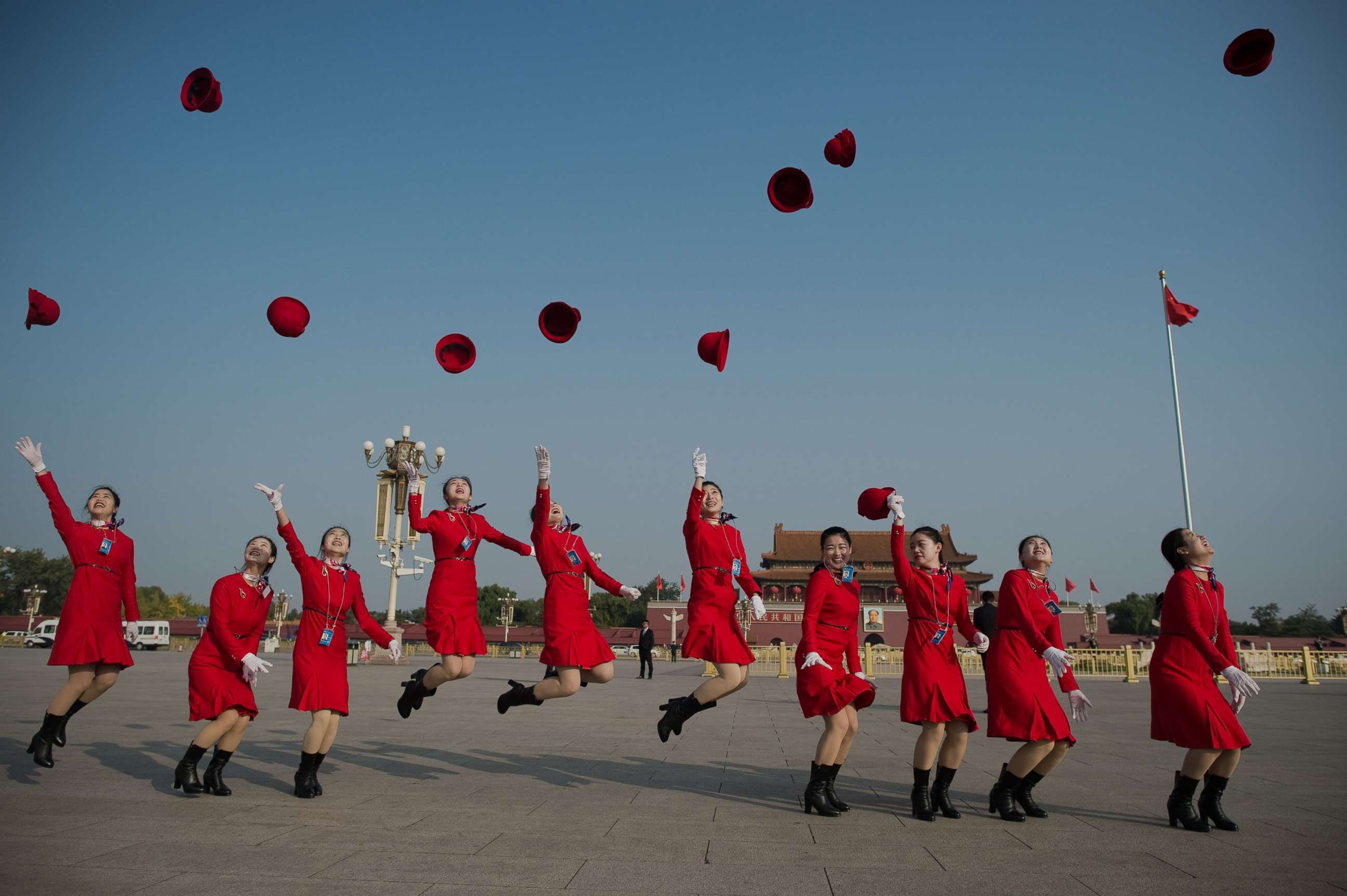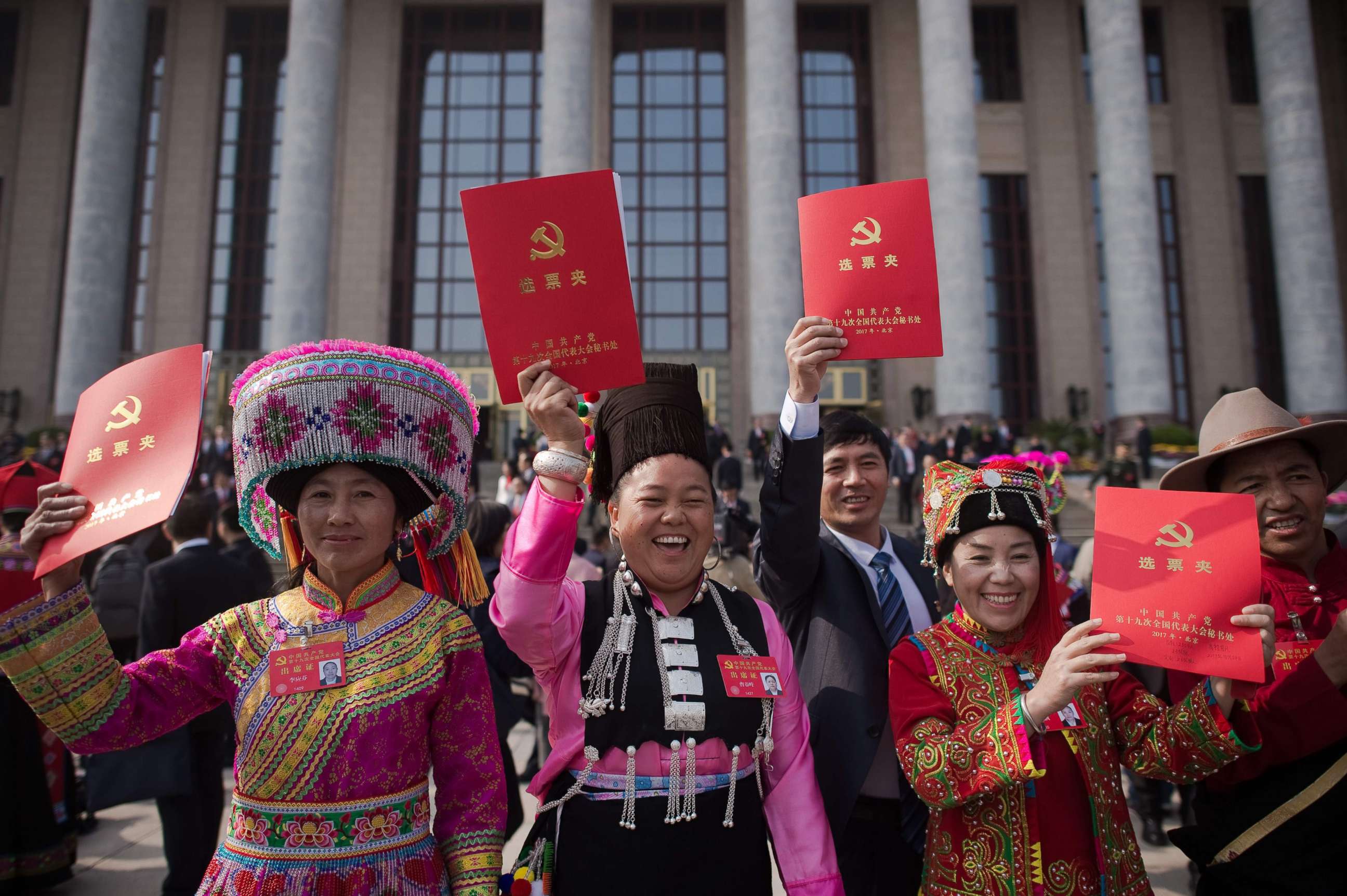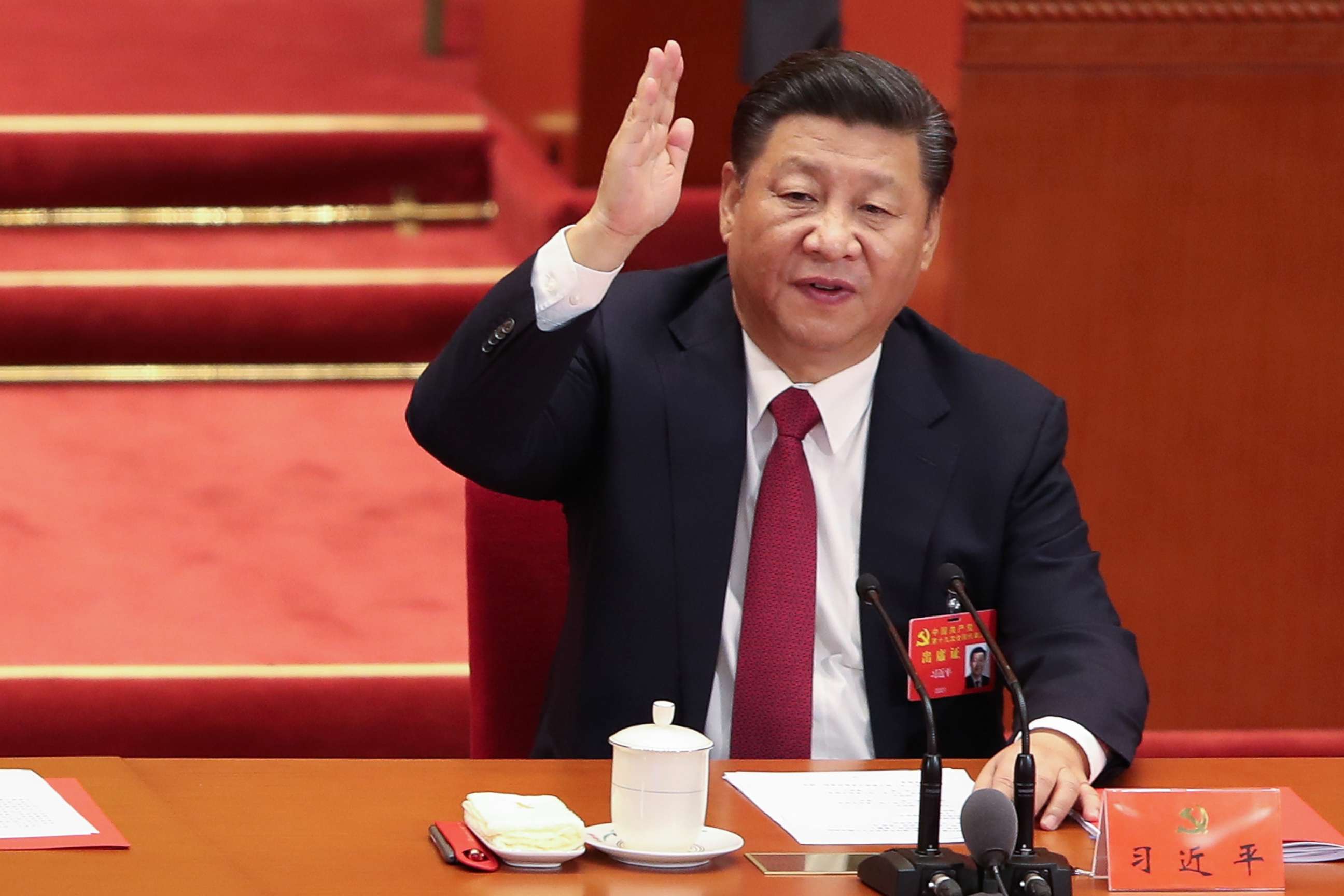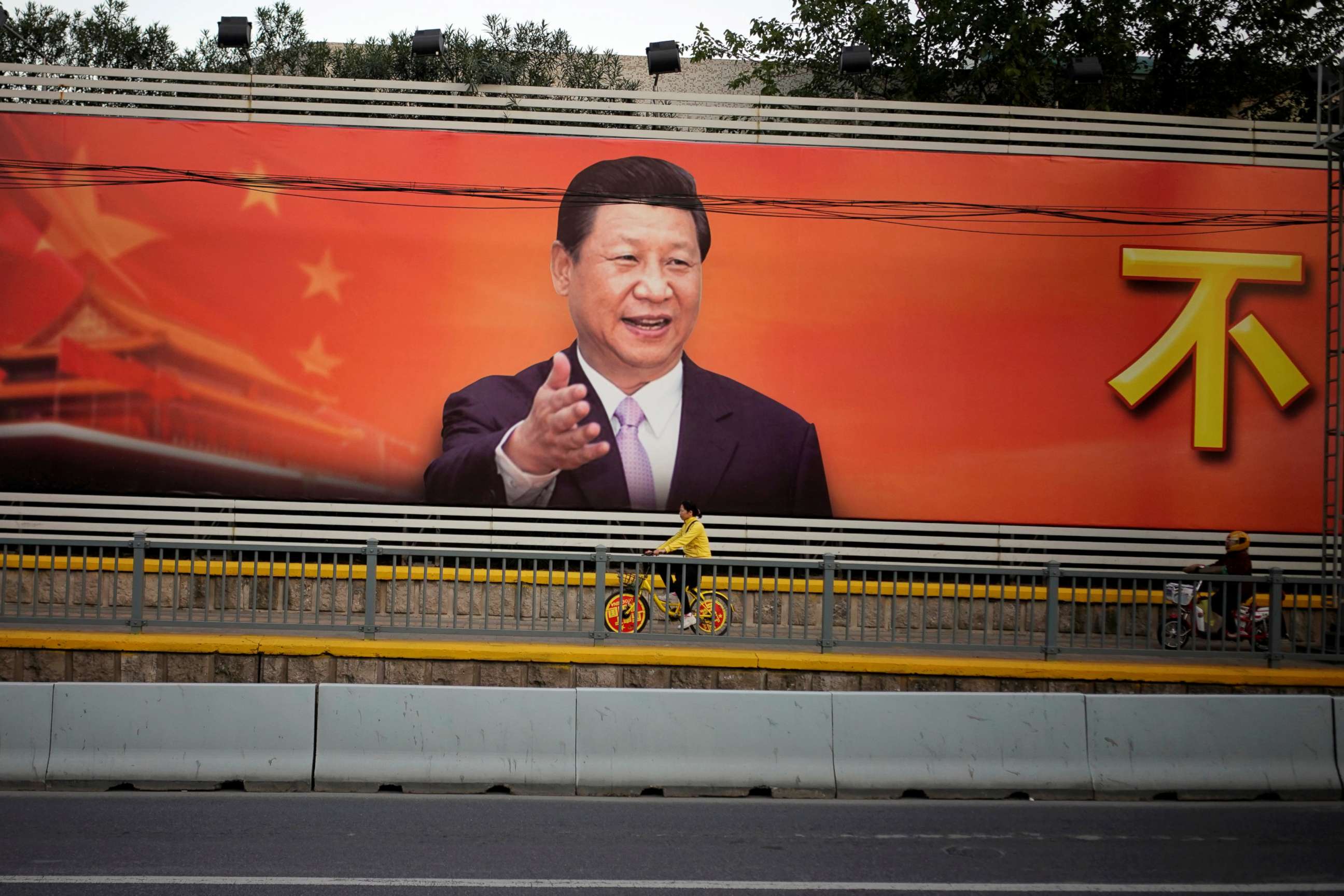Chinese President Xi Jinping gets the Mao Zedong treatment to become most powerful leader since the founding father
Ruling party amended party constitution to include his name and ideology.
BEIJING— -- Chinese president Xi Jinping had his name enshrined Tuesday into the Chinese Communist Party constitution on the closing day of the 19th Party Congress, the most important event on the Chinese political calendar.
No other living leader has enjoyed such treatment except for Mao Zedong, effectively elevating Xi to the same status as the nation's founder before the unveiling of China's new top leadership lineup today.
As the 19th National Congress of the Communist Party of China, a twice-in-a-decade national political gathering, wrapped up Tuesday in Beijing, Xi embarked on his second five-year term as the party general secretary, with the ruling party amending its party constitution to include his name and political ideology, titled "Xi Jinping Thought on Socialism with Chinese Characteristics in a New Era."

Xi's immediate predecessors had their political thoughts added only as guidelines into the party constitution. Former presidents Jiang Zemin and Hu Jintao's ideologies, "Three Represents" and "Scientific View of Development" respectively, were added without their names. Deng Xiaoping, the Chinese leader who opened up China's economy in 1978, had his "Deng Xiaoping Theory" added to the constitution, but not until after he died in 1997.
Xi first introduced his "New Era" thoughts without attaching his name during a 3 1/2-hour long televised speech he delivered last week at the opening of the Congress in front of more than 2,200 delegates in the Great Hall of the People, as well as to the public, who watched everywhere from their workplaces to elementary school classrooms.
Chinese political watchers saw whether he would be able to imprint his name into the party constitution as a key test of Xi's power. Xi has rapidly consolidated his power since assuming office in November 2012, with the party endorsing him as the "core" leader last year.

During his marathon speech, Xi laid out his 14-part political theory. His "New Era" comes during a time when China's next major challenge has shifted from lifting extreme poverty to improving "the unbalanced and inadequate development and the people's ever-growing needs for a better life."
Online reaction could not be easily measured. The comment function was disabled on most posts that mentioned the news on Weibo, China's equivalent of Twitter. On Netease, a popular news portal, one user identified to be from the city of Nanjing wrote, "[This is] in favor with the general public," a comment that received hundreds of "likes."
Since the beginning of the year Xi has positioned China to be the champion of globalization, drawing a rhetorical line between Xi and President Donald Trump.

"Countries should view their own interest in the broader context and refrain from pursuing their own interests at the expense of others," Xi remarked at the World Economic Forum in Davos, Switzerland in January.
China’s Communist Party has previously adopted a governing system of collective leadership after the 1976 death of Mao, whose personality cult crippled the economy and ruined millions of lives.
"In retrospect, it was an overwhelming assertion of authority to a degree unseen since Mao," Francois Godemont, director of the China-Asia program at the European Council on Foreign Relations, told The Washington Post.

In a surprising development, however, Xi showed he is still abiding by some his party's norms. His close ally, Wang Qishan, the party's anti-corruption czar and current Standing Committee member, is absent from the list of a new Central Committee announced Tuesday, meaning he will not be on the new Standing Committee. Speculation had been rife that the 69-year-old Wang would stay on despite an unwritten rule of retirement at age 68.
The new Standing Committee, the apex of power in China, was revealed to the media Wednesday morning.
ABC News' Beimeng Fu contributed to this report.




